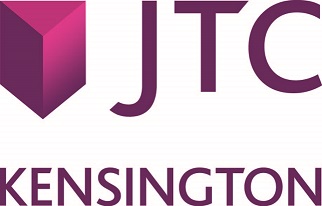In April 2015, the Singapore’s Accounting and Regulatory Authority (ACRA) announced that the legislative changes to the Singapore Companies (Amendments) Act 2014 would be effected in two phases ie. 1 July 2015 and 3 January 2016.
One of the key changes under the first phase was introduction of new criteria for qualification as a “small company” for audit exemption. The new audit exemption is intended to help reduce regulatory costs for smaller companies that do not have wide market impact, and would result in a reduction in compliance costs. Existing safeguards will however be retained such as requiring all companies to keep proper accounting records and empowering shareholders with at least 5% voting rights to require a company to prepare audited accounts.
The changes take effect for financial periods commencing on or after 1 July 2015.
QUALIFICATION AS “SMALL COMPANY”
A private company that fulfils at least two (2) of the following three (3) quantitative criteria in each of the immediate past two (2) consecutive financial years (FYs):
- Total annual revenue of not more than S$10 million;
- Total assets of not more than S$10 million;
- Number of employees of not more than fifty (50)
In order for group companies to be exempted from audit requirements, a parent company or a subsidiary company must be a “small company” and part of a “small group”. The question of whether an entity is part of a group is to be decided in accordance with the Singapore Financial Reporting Standards (SFRS). This principle applies regardless of whether the ultimate parent company is a Singapore or overseas company, and regardless of the financial reporting standards the ultimate parent company may use for the purposes of its consolidation.
QUALIFICATION AS “SMALL GROUP”
The group must satisfy at least two (2) of the following three (3) quantitative criteria in each of the immediate past two (2) consecutive financial years:
(a) Consolidated revenue of not more than S$10 million;
(b) Consolidated total assets of not more than S$10 million;
(c) Total number of employees of the group of not more than 50.
Application of the new “small company” concept in the following scenarios, assuming the company does not form part of a group of companies:-
- New companies incorporated after commencement date of “small company” criteria
A company incorporated on or after 1 July 2015 would qualify as a “small company” if it is a private company and meets the quantitative criteria in the FY for which the financial statements are being prepared.
- Transitional Provisions
The transitional provisions are applicable to companies that were incorporated before 1 July 2015. Such a company can qualify as a “small company” if it is a private company and meets the quantitative criteria in either the first or second FY commencing on or after 1 July 2015.
A company which has qualified as a “small company” in the first or second FY commencing on or after 1 July 2015 continues to be a “small company” until it is disqualified as a “small company”. Disqualification would occur if it:
- Ceases to be a private company at any time during the FY, or
- Does not meet at least two (2) of the three (3) quantitative criteria for the immediate past two (2) consecutive FYs.
OTHER CURRENT ATTRACTIVENESS
Wholly-owned newly incorporated subsidiary or individually owned private limited Singapore companies may also be accorded various tax exemptions by the Inland Revenue Authority of Singapore (IRAS) when certain qualifying conditions are fulfilled.
From YA2020 onwards, qualifying new start-up companies may enjoy 75% corporate tax exemption from the first S$100,000 normal chargeable income and the next S$100,000 chargeable income is granted a 50% exemption from the prevailing corporate tax rate in Singapore. This exemption scheme applies to qualifying companies only for their first 3 consecutive year of assessment (YA). From the fourth YA onwards, the companies can enjoy the partial tax exemption.
The tax exemption is open to all new companies except these two types of companies:
- A company whose principal activity is that of investment holding; and
- A company whose principal activity is that of developing properties for sale, investment, or both.
